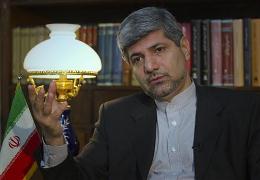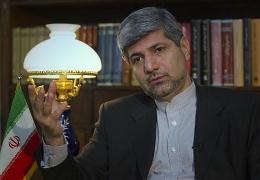 (Reuters) - Iran rejected accusations from Gulf Arab states that it was meddling in their affairs, saying those countries were "running away from reality", an Iranian news agency reported on Wednesday.
(Reuters) - Iran rejected accusations from Gulf Arab states that it was meddling in their affairs, saying those countries were "running away from reality", an Iranian news agency reported on Wednesday.Six U.S.-allied states demanded Iran end what they called interference in the region, in a statement on Tuesday at the end of a two-day summit of the Saudi-led Gulf Cooperation Council (GCC), reiterating a long-held mistrust of their main rival.
The communique did not elaborate, but the most common Gulf Arab complaint relates to Bahrain, which has repeatedly accused Tehran of interference in its internal politics by provoking protests.
Iranian Foreign Ministry spokesman Ramin Mehmanparast dismissed the statement. "Shifting the responsibility for the domestic problems of the regional countries is a way of running away from reality, and blaming others or using oppressive methods are not the right ways to answer civil demands," he said, according to the Iranian Students' News Agency (ISNA).
The oil-producing GCC states wield influence out of proportion to their sparse populations due in part to global energy and investment links, generous international aid and Saudi Arabia's role as home to Islam's two holiest sites.
Iran sees the Gulf as its own backyard and believes it has a legitimate interest in expanding its influence there.
In Manama, Bahraini Foreign Minister Khalid Bin Ahmed Bin Mohammed Al Khalifa told reporters on Tuesday that Iran posed a "very serious threat".
"Politically, (there is) lots of meddling in the affairs of GCC states; an environmental threat to our region from the technology used inside nuclear facilities; and there is of course the looming nuclear programme," he said, referring to Iran's disputed atomic work.
When asked about the Bahraini remarks, Mehmanparast said they were not worth responding to, ISNA said.
The Sunni Muslim-dominated Bahrain government has been struggling since early last year to suppress pro-democracy unrest led mainly by the Gulf Arab kingdom's majority Shi'ite Muslims, who say they been politically and economically marginalized, erupted last year.
Bahrain, where the U.S. Fifth Fleet is based, has accused Shi'ite power Iran of being behind the unrest. Tehran denies this.
Bahrain's rulers brought in Saudi and United Arab Emirates forces last year to help quell the protests. Iran condemned the move, saying it could lead to regional instability.
Iran is also at odds with the United States and its allies over its disputed nuclear activities which the West fears is aimed at making nuclear weapons, a charge Tehran denies.
The GCC is made up of Saudi Arabia, the United Arab Emirates, Bahrain, Oman, Qatar and Kuwait.
By Reuters
The Iran Project is not responsible for the content of quoted articles.











